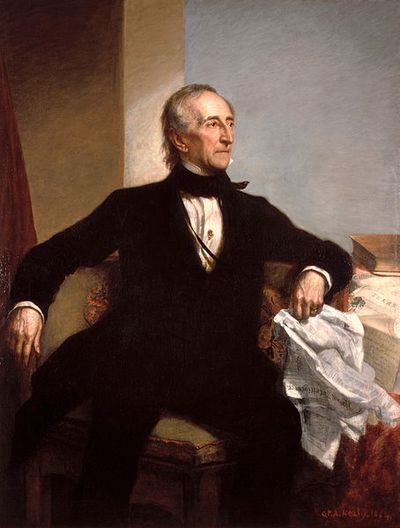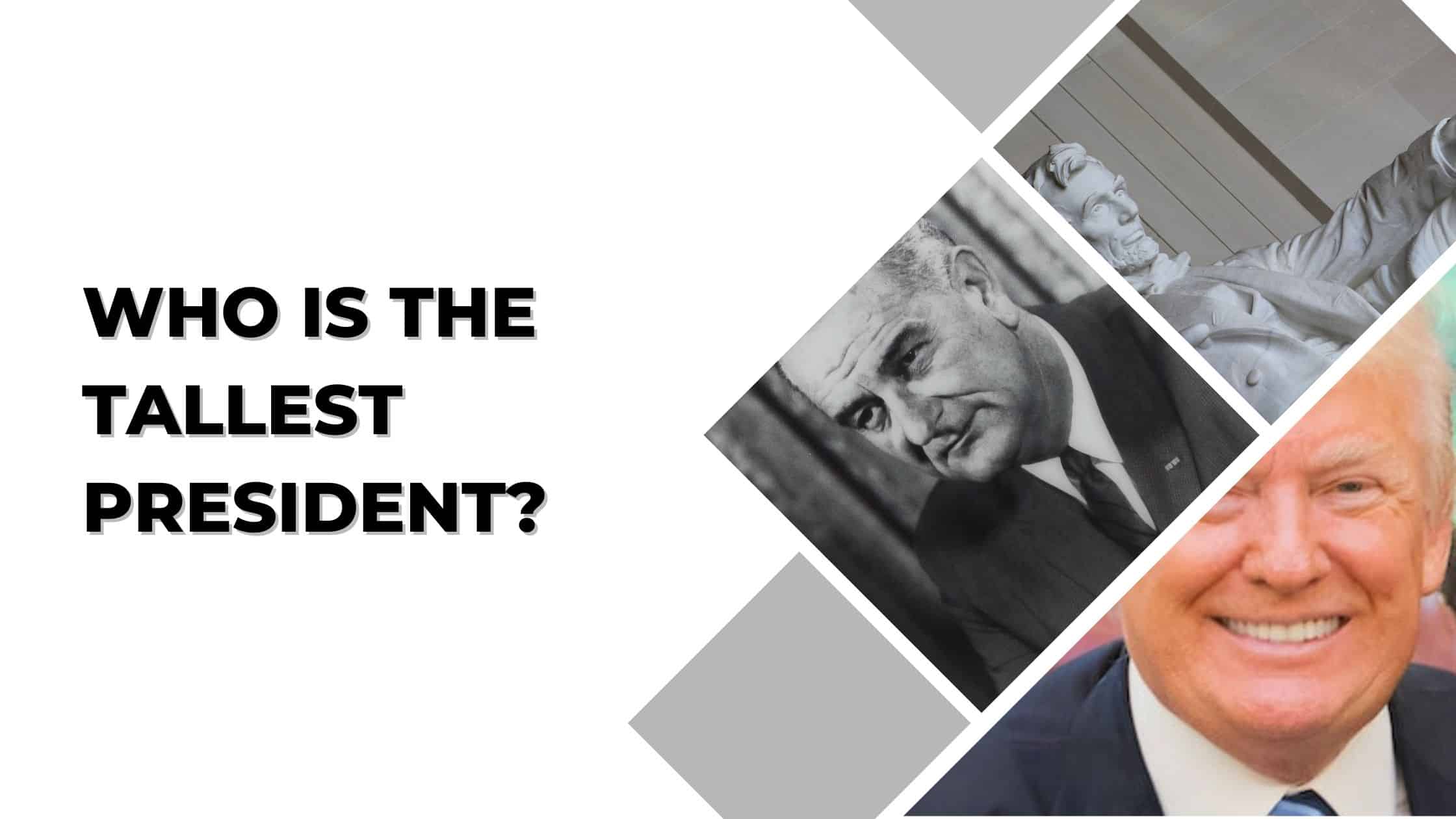Table of Contents
ToggleWhen was John Tyler born?
John Tyler was born in 1790.
Where was John Tyler born?
John Tyler was born in Charles City County, Virginia.
How old was John Tyler when he became president?
John Tyler was elected at the age of 51.
What years was John Tyler president?
John Tyler was president from 1841-1845.
When did John Tyler die?
John Tyler died at the age of 71 in 1862.
How did John Tyler die?
He died from a stroke.
The Presidency Of John Tyler
During the election campaign of 1840, William Henry Harrison was accompanied by a song that would become famous across the country. It told the story of “Tippecanoe and Tyler too”. This phrase would go on to become incredibly significant shortly after Harrison’s success.
At the time, John Tyler was the afterthought, the other man on the ticket that would become vice president if Harrison won. However, the secondary man in the campaign soon became the leading figure as an unelected president for four years. Few are as aware of Tyler as they are of “Old Tippecanoe”.
The 1840 election campaign of William Henry Harrison and John Tyler.
In 1840, the Whigs put forward William Henry Harrison as their nominee for election against the Democrat Van Buren. They discredited Van Buren as the man that brought the country into a recession and put Harrison forward as the more accessible every-man.
Tyler was brought in on the ticket as his running mate, with the aim of becoming vice president. The focus was always on Harrison, with Tyler making the occasional speech at rallies to support his colleague.
The final result was decisive with a clear landslide victory for the Whigs. Harrison and Tyler won 234 Electoral College votes to Van Buren’s 60, giving them wins in 19 states. The Whigs also took control of both houses. This would have been great for the party, had the Whigs been more fond of Tyler, who had jumped over to the party from the Democrats and didn’t agree with them on all issues. Tyler was sworn in as vice president in the Senate chamber, gave a three-minute speech, and soon returned to Virginia.
The death of William Henry Harrison.
While the campaign slogan was established as placing Tyler second to old Tippecanoe, things would soon change.
Harrison died in office just a month after being sworn in for his inauguration. The cause of death is most commonly attributed to pneumonia, with the notion that this was brought on by an initial cold caught on inauguration day itself. Others suggest that other health issues were to blame.
Either way, Harrison’s decisions to ride to the ceremony on horseback, speak for hours in the rain without a coat, and then continue to greet people for his ball, didn’t help.
John Tyler assumes the presidency following questions over the Constitution.
And so, John Tyler became the unelected President of the United States for what was practically a full term in office. In doing so, he holds the record for the longest time in power in the White House without being elected.

Get Smarter on US News, History, and the Constitution
Join the thousands of fellow patriots who rely on our 5-minute newsletter to stay informed on the key events and trends that shaped our nation's past and continue to shape its present.
Other vice presidents would assume the presidency through the death of their president much later, and often go on to continue their own term as an elected leader. Harrison achieved little when not bedridden and it was decided that Tyler would take the office of the president rather than any secondary title of acting vice-president. This all led to a lack of acceptance in Congress.
Tyler became increasingly unpopular with others in his party, in the cabinet, and in Congress.
John Tyler was always going to do things his way when taking on his duties – either as vice president or president. For example, he would return to his plantation in Virginia on becoming vice president, believing he could do the job just as well from there.
This is also a man that had split with his previous party, the Democrats, to become a Whig nominee. His popularity did not increase following Harrison’s death. Things even got so bad that opponents threw stones at the White House and burned an effigy of Tyler on the porch.
Many refused to acknowledge Tyler as president due to the circumstances. We have to remember that at the time, the 25th Amendment was not in place. There was no constitutional right to assume the presidency, just for the vice president to assume the duties under Article II, Section 1, Clause 6 of the Constitution. Some, understandably, saw this to mean that Tyler should continue in his current position but with the duties of the deceased Harrison.
Tyler, understandably, disagreed and had himself sworn in. This caused a big rift in the party and the White House, with the cabinet becoming hostile and eventually resigning over the events.
There are even stories that the new president would return mail unopened to correspondents that used the term vice president or acting president
Tyler’s determination to veto bills and tariffs would then lead to a notion for impeachment.
Things would then turn increasingly sour in the party when there were calls for the new President Tyler to be impeached. The calls for impeachment came about because Congress felt that Tyler was abusing his power through the ability to veto bills.
The veto process is important for any president working against a house controlled by the opposing party. However, it is also possible for presidents to use them as a way of scoring points. There were concerns that Tyler was abusing that right as he continually vetos bills relating to the National Banking Act.
Tyler would go on to veto tariff proposals. It was believed that Tyler was doing this to attack Congress rather than for legitimate political reasons.
In 1842, Congressman Botts brought forward an impeachment resolution. A second notion was later supported by John Quincy Adams, who disliked both Tyler’s actions and his character as a slaveholder, but his committee did not formally recommend impeachment. Instead, they argued for a Constitutional Amendment on vetos, which also failed.
Expansionism and the annexation of Texas.
Compared to other presidents of the era, Tyler didn’t achieve all that much in terms of policy or progressing national interests. However, he was a keen advocate of expansionism and in increasing the landmass of the United States through annexation.
Tyler wanted to continue the United States’ relationship with Asia and increase trade, with a successful treaty set up with China.
There were also plans to bring Hawaii, Florida, and Texas into the union. Tyler began the process of annexation of Hawaii, with the application of the Monroe Doctrine, but it was Texas that was the main goal.
The aim of annexing Texas was clear from the start of Tyler’s presidency. The Republic of Texas had already declared independence from Mexico in 1836 and the region was in favor of becoming part of the Union.
There were reservations, however, over tensions with the south and fears of adding a new southern neighbor into the equation. Tyler would bring in a new Secretary of State that supported his ideas and worked on creating a treaty for annexation. This was finally completed on February 27th, 1844.
However, it wouldn’t be until December 29th, 1845, that Texas would become the 28th state. The original treaty was rejected by the Senate. The only way to get the treaty through was to remove Tyler from the equation.
Polk was nominated instead of Tyler for the next election, with Tyler’s endorsement, and the measure was finally approved.
The USS Princeton disaster of 1844.
The USS Princeton disaster of 1844 occurred the day after the completion of the Texas annexation treaty. Tyler embarked on a ceremonial cruise along the Potomac in this new ship, inviting a series of guests and members of the cabinet.
The grand moment of the day was the firing of the “Peacemaker” the largest naval gun at the time. However, later in the day, the gun malfunctioned, and there was an explosion on board. Many were killed or wounded, including some of the cabinet, but Tyler escaped harm.
Some historians call it the biggest tragedy faced by a United States President prior to the Civil War. Plans for the completion of the Texas annexation were placed on hold.
There was, however, a positive story for Tyler to come out of this tragedy. One of the men killed in the explosion on the USS Princeton was the representative for New York, David Gardiner. Gardiner’s daughter, Julia, was part of the group of guests on board and she fainted at the scene. Tyler would be the one to carry her to safety. Later that year, the pair would marry. Tyler’s first wife had died two years previously from a stroke.
Julia would go on to have seven children with Tyler. At the time of writing, one of their grandchildren, Harrison Ruffin Tyler, is still alive. This makes Tyler the earliest former president was a living grandchild.
John Tyler and his influence on the Civil War.
One of the most influential and interesting periods of John Tyler’s political life actually happened after his term in the White House. On leaving office, Tyler would return to that plantation in Virginia – where he owned slaves. He renamed the land Sherwood Forest after his nemesis Clay said that Tyler was retreating like Robin Hood as a political outlaw.
Tyler’s views on slavery are questionable – not just from an ethical standpoint but in that they are unclear. He is reported to have admitted that slavery was an “evil”, yet continued to own them and wasn’t much of an apologist.
What is clear, however, is that Tyler sided with the Confederacy. One of the most defining moments post-presidency was the Virginia Peace Conference of 1861.
The idea here, as the name suggests, was to avoid civil war by drawing up some sort of compromise. At the same time, the Montgomery Convention was busy drawing up the Confederate Constitution. Tyler would end up opposing the final resolutions as being too little to look after the interests of those in the south. He then began to believe that secession was the only option.
John Tyler and the start of the Confederacy.
Still, Tyler remained an opponent to some of the ideas of Lincoln and those in the north. He disliked notions of limitations on the expansion of slavery and warned up trouble for the “great model republic” as the southern states considered the option to secede. Once Civil War was declared, Tyler voted in favor of his home state, Virginia, leaving the nation and would lead a committee for the admission of the state into the Confederacy.
The last scene of this second act was Tyler’s campaign to become a part of the new Confederate House of Representatives. He would go on to win but died on January 18th, 1862 before he could begin his role. It is interesting to consider what part the former president could have played in the development of the Confederacy from a political standpoint during the war.
Instead, Tyler was buried in Richmond with a Confederate flag over his coffin at the funeral. President Lincoln declined to give any public proclamation of his death, as would normally have been customary for a former president.
Even with all this influence over his political career, John Tyler is still “Tyler too”
The legacy of John Tyler isn’t as strong as it perhaps should be. Despite all that happened during his short time in office, Tyler is barely remembered at all among citizens and those with a passing interest in history and politics. But, that era will always be about “Tippecanoe and Tyler too”. The story of Harrison is just that much more interesting to the everyday American.
Historians have a better understanding of his role, but they too are unfavorable and see Tyler as one of the worst presidents ever. Theodore Roosevelt once said that Tyler was “a politician of monumental littleness”. Still, his actions during that time would be instrumental in major aspects of presidential, constitutional, and American history more generally.
It was Tyler that started the whole debate on the role of a vice president following the death of a president. Then there were the decisions, vetos, and propositions that would not only change the structure of the United States but also bring the nation closer to the Civil War.
His place in the Confederacy is just as influential. As unpopular as he was, he was still an important stepping stone to another era.











